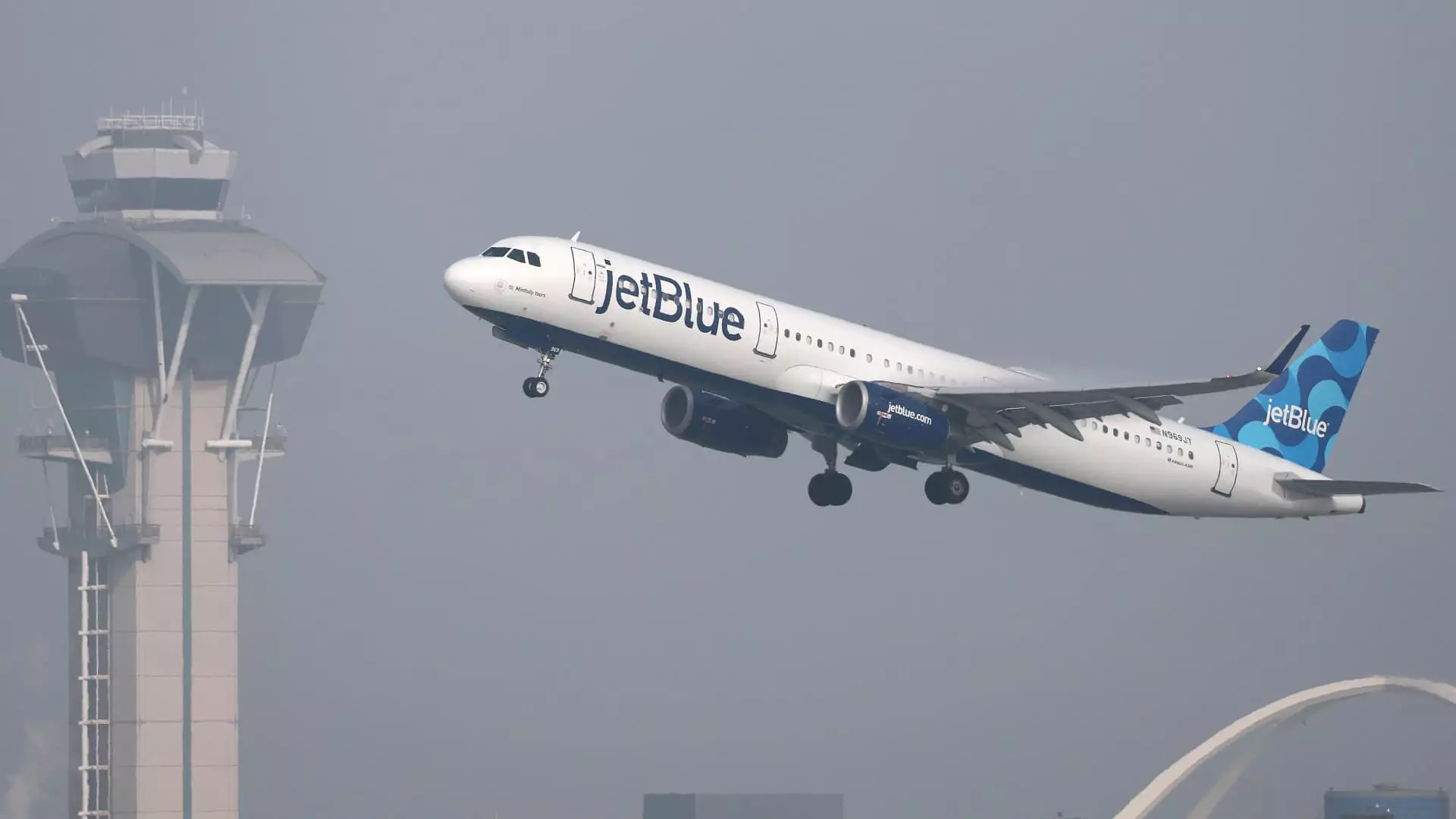In the fiercely competitive landscape of the aviation industry, JetBlue Airways finds itself at a crossroads. Recent legal setbacks have created obstacles for the airline, yet JetBlue’s leadership remains steadfast in its quest for growth through strategic partnerships. President Marty St. George’s remarks at a Barclays industry conference highlighted ongoing discussions with „multiple airlines“ aiming to forge beneficial collaborations. This proactive approach showcases JetBlue’s determination to enhance its market standing, particularly against formidable rivals like Delta, American Airlines, and United Airlines.
The complexity of the airline’s situation has been magnified by federal judicial actions. In 2023, a federal judge decisively rejected JetBlue’s partnership with American Airlines in the Northeast, deeming it anticompetitive. Additionally, another court ruling in the previous year thwarted JetBlue’s plans to acquire Spirit Airlines, a budget carrier that recently entered Chapter 11 bankruptcy protection. These decisions not only impede JetBlue’s ambition to expand its network but also raise questions about the viability of merger and acquisition strategies in an industry heavily scrutinized by regulators.
As JetBlue commemorates its 25th anniversary, the airline understands the imperative to evolve and enhance its competitive edge. St. George emphasized the necessity of robust partnerships and affiliations to better serve its customer base and fulfill their evolving travel preferences. The airline’s limitations in offering competitive loyalty programs, particularly in contrast to larger carriers known for their extensive frequent flyer points offerings, have emerged as a critical concern. Expanding JetBlue’s capabilities in this area is paramount, as customers increasingly seek value from airline loyalty programs.
A significant facet of JetBlue’s growth strategy hinges on establishing a „full global earn and burn“ system—essentially allowing customers to earn and redeem loyalty points seamlessly across global networks. St. George’s insight points to a recognized gap in JetBlue’s current framework, particularly within the context of consumer expectations from major airlines. Enhancing its loyalty program to mirror those of larger competitors could position JetBlue not only as an attractive option for new flyers but also as a preferred choice for current customers who prioritize value and reward.
While the road ahead is fraught with challenges, JetBlue’s commitment to identifying and nurturing new partnerships serves as a beacon of optimism. The airline’s leadership recognizes that discovering an „accretive deal“ could facilitate their ambitions of growth and operational enhancement. As the airline industry continues to adapt to changing consumer behavior and regulatory landscapes, JetBlue’s strategic pivot seems both timely and necessary. The quest for strategic partnerships may ultimately reshape JetBlue’s trajectory, allowing it to carve out a distinct identity in an industry dominated by more established players. Whether these new alliances materialize remains to be seen, but as JetBlue navigates through turbulent skies, its proactive stance suggests a readiness to embrace opportunities that lie ahead.


Napsat komentář